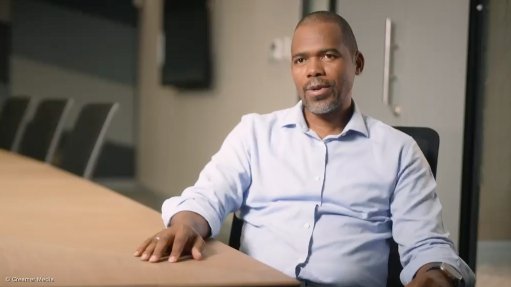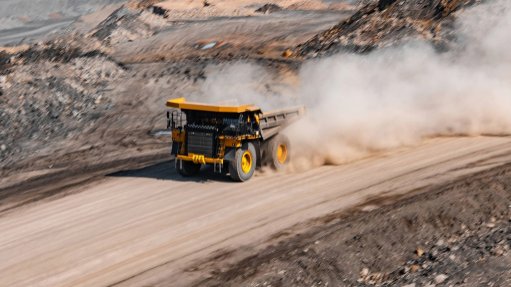Miners can shift battery recycling debate: ABRI’s Katharine Hole
This article has been supplied.
By Richard Roberts, Editorial Director, Beacon Events
‘We have a massive mining and metals industry trying to move to net zero’
Australian Association for the Battery Recycling Industry CEO Katharine Hole says the country’s mining and mining service industries have the opportunity to play a substantial role in accelerating development of in-country electric vehicle (EV) and energy storage battery supply chains and wants to grow collaboration.
Getting miners, METS (mining equipment, technology and services) companies, recyclers, researchers and government representatives in the same room to deepen what is a fast-moving discussion about re-mining and processing battery waste is critical, Ms Hole says. Hence she welcomed the platform created by this year’s IMARC event in Sydney, which is presenting its first Mining, Metals and the Circular Economy stream.
“I think it’s hugely important,” ABRI’s CEO of three years said.
“Much of what is happening with battery recycling and black mass processing and recovery overseas involves the automotive or mining industries linking with recyclers.
“In Europe, for example, they've got a huge automotive sector which is linking up with recyclers.
“Whereas here in Australia we have a massive mining and metals industry trying to move to net zero, involving [potentially] huge volumes of energy storage and mining equipment batteries. We know some of the mining companies are looking at end-of-life plans for [larger] batteries.
“What will that look like?
“Will we see dedicated smaller facilities, even some remote facilities where the companies work collaboratively with local communities on projects?
“This is part of a broader discussion about collaboration opportunities and about how we can leverage mining sector expertise, from logistics through to hydrometallurgy.”
Ms Hole will be a key contributor to a Mining, Metals and the Circular Economy discussion on value in re-mining battery, solar, tyre and other waste from Australia’s extractive industries.
CSIRO says while close to 100% of the country’s lead battery waste is recycled perhaps as little as 10% of lithium-ion battery waste is being reused. The Future Batteries Industry CRC (Co-operative Research Centre) has said more than A$600 million of valuable materials in lithium batteries could already be thrown away (or as much as $3 billion, depending on commodity prices and battery chemistries).
About 90% of the country’s estimated 30,000-to-32,000 tonnes of current “end-of-life” battery stock is in small batteries. By 2035, perhaps 70% of an 80,000t pile of spent batteries could be large batteries: EV and/or energy storage.
“The big growth area for the recyclers is the large batteries,” Ms Hole says.
“We’ve got a number of business models emerging, ranging from people who’ve come out of the e-waste sector to groups that may only ever focus on large-format batteries.
“The challenge, particularly for the latter, is there’s not enough volume at the moment if you’re a recycler.
“You need funding … and the industry needs to be ready at scale. You can’t just do 500t this year and next year 3000t. You’ve got to be ready and it’s got to be at scale.
“The big challenge in Australia, as it is for a lot of industries, is the logistics costs are usually high. That’s a challenge for us when you look at the consumer batteries right through to the big ones.
“We know we can recycle them, but how do we get them from the end user at end of life back to somewhere that can process them?
“So standing up the recycling industry is one part, but there is this big gap in the middle around the collection and logistics network.
“We need to fill the collection and logistics gap in the battery circular economy as well as turbocharge the recovery of critical minerals. A thriving battery recycling industry will ensure batteries are not only recovered, but their valuable materials once recovered are reused and not just sent to landfill which is a significant environmental hazard.”
ABRI and its 60 or so members have been calling for government policy action on a range of fronts, from municipal measures to curb battery fires and surging insurance costs – “we surveyed ABRI members last year and their insurance costs are going up 100% per annum, which is not sustainable”, says Ms Hole – to stimulus for the recycling sector.
The association has stressed urgency, citing the scale of incentives elsewhere and concerns about Australia being left out of new circular regional and global battery supply chains.
Australia’s federal government announced $520m of “critical battery manufacturing” support in its latest annual budget, and modest funding for other initiatives.
According to the FBI CRC, more than $20 billion of investment is needed in Australia by 2030 to build a diversified, competitive battery industry producing high-value chemicals and cells, exporting battery modules, and sustainably recycling systems. The industry could support more then 34,000 jobs versus the current 6000 or so in the sector.
The centre has said recovery of valuable minerals through reuse initiatives is “essential” to the broader strategic vision.
Ms Hole says a window is open for Australia to leverage hydrometallurgical know-how in sustainable critical mineral recovery technology development to build “sovereign capability” in critical mineral recapture, and also cash in on new equipment and technology export markets.
“A lot of the hydromet technology that the battery recyclers are drawing on here is coming out of the mining sector,” she says.
“We’ve got a natural advantage and I think that’s why we’re already seeing technology being developed and exported.
“Others are looking to the mining sector for solutions.”
Article Enquiry
Email Article
Save Article
Feedback
To advertise email advertising@creamermedia.co.za or click here
Press Office
Announcements
What's On
Subscribe to improve your user experience...
Option 1 (equivalent of R125 a month):
Receive a weekly copy of Creamer Media's Engineering News & Mining Weekly magazine
(print copy for those in South Africa and e-magazine for those outside of South Africa)
Receive daily email newsletters
Access to full search results
Access archive of magazine back copies
Access to Projects in Progress
Access to ONE Research Report of your choice in PDF format
Option 2 (equivalent of R375 a month):
All benefits from Option 1
PLUS
Access to Creamer Media's Research Channel Africa for ALL Research Reports, in PDF format, on various industrial and mining sectors
including Electricity; Water; Energy Transition; Hydrogen; Roads, Rail and Ports; Coal; Gold; Platinum; Battery Metals; etc.
Already a subscriber?
Forgotten your password?
Receive weekly copy of Creamer Media's Engineering News & Mining Weekly magazine (print copy for those in South Africa and e-magazine for those outside of South Africa)
➕
Recieve daily email newsletters
➕
Access to full search results
➕
Access archive of magazine back copies
➕
Access to Projects in Progress
➕
Access to ONE Research Report of your choice in PDF format
RESEARCH CHANNEL AFRICA
R4500 (equivalent of R375 a month)
SUBSCRIBEAll benefits from Option 1
➕
Access to Creamer Media's Research Channel Africa for ALL Research Reports on various industrial and mining sectors, in PDF format, including on:
Electricity
➕
Water
➕
Energy Transition
➕
Hydrogen
➕
Roads, Rail and Ports
➕
Coal
➕
Gold
➕
Platinum
➕
Battery Metals
➕
etc.
Receive all benefits from Option 1 or Option 2 delivered to numerous people at your company
➕
Multiple User names and Passwords for simultaneous log-ins
➕
Intranet integration access to all in your organisation


















